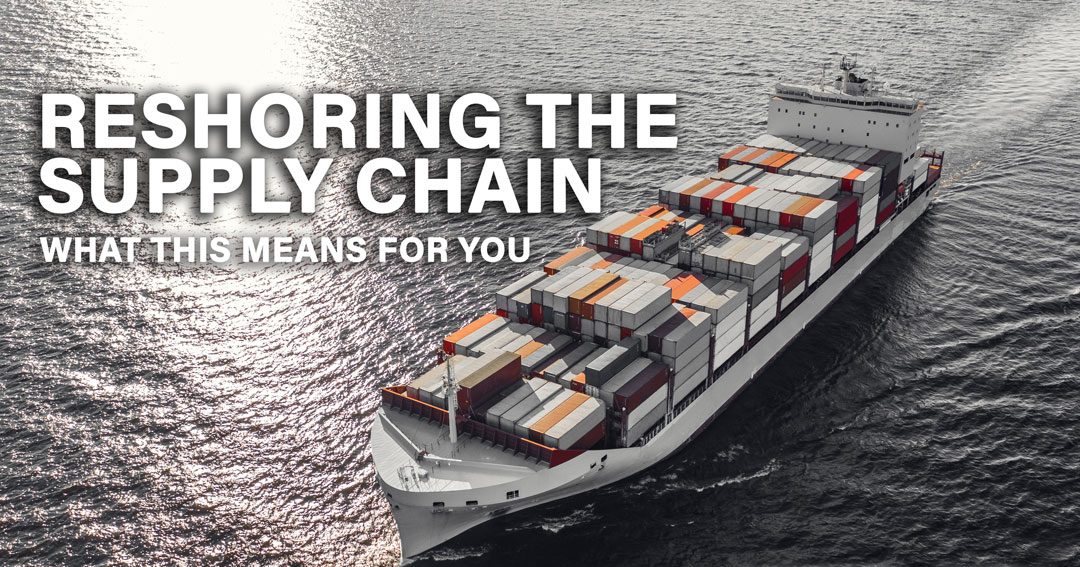What to Know About Reshoring Supply Chains
‘If you are struggling to reshore elements of your supply chain, you are not alone! Reshoring supply chains is something that many manufacturing businesses are facing. Customodal is here to help mitigate challenges your business might be facing.
Deloitte Insights recently shared, “Policymakers are looking to pair reshoring with ‘friendshoring’—a network of trusted suppliers from friendly countries that offer multiple independent supply paths. ‘Friendshoring’ offers a clear path to improving the resilience of many key industries while supporting important international relationships.”
Deloitte also states, “Many (Governments) are encouraging the reshoring of critical supply chains to increase their economic resilience. Reshoring is inherently popular, but the process has limitations. Some supply chains can’t be fully reshored because critical resources may exist in only one or two locations on the planet. Economics can limit other supply chains, since the cost of replicating them domestically is likely to be larger than the entire global industry is worth.”
Kearney recently shared insights based on their 2021 Reshoring Index report. Per their research and surveys of CEOs and manufacturing executives, they found a positive and growing sentiment for reshoring compared with last year. More companies are seeking to invest in manufacturing assets in the United States—and in Mexico.
Additional key findings from Kearney’s study included:
- 92% of executives express positive sentiments toward reshoring.
- 79% of executives who have manufacturing operations in China have either already moved part of their operations to the United States or plan to do so in the next three years, and another 15% are evaluating similar moves.
- Kearney’s China Diversification Index, which first appeared in the 2018 Reshoring Index report and tracks the shift in US manufacturing imports away from China to other Asian LCCs, found that China’s share continues to decrease, from 66% back in 2018 to 55% in 2021.
- Starting in Q4 2020, US reliance on China diminished as the other Asian LCCs started to recover from the pandemic and American companies began to again diversify away from China as they had begun to do before COVID-19.
Reshaping supply chains can help improve economic resilience. If you are looking for more information on reshoring your supply chain, there are a couple of options. The Reshoring Initiative is a nonprofit with a mission to bring good, well-paying manufacturing jobs back to the United States by assisting companies to more accurately assess their total cost of offshoring, and shift collective thinking from offshoring is cheaper to local reduces the total cost of ownership. Their website offers a number of free tools for supply chain managers when reviewing the pros and cons of reshoring.
Customodal can also help! Reach out to our team today.
[/et_pb_text][/et_pb_column][/et_pb_row][/et_pb_section]


